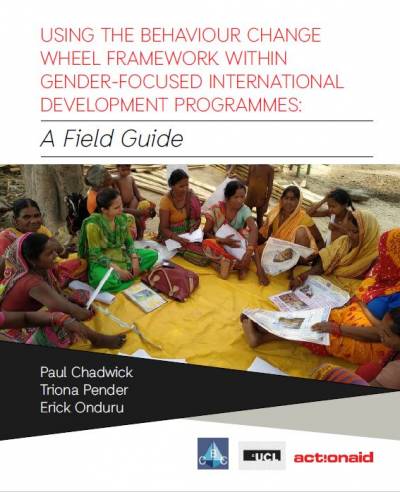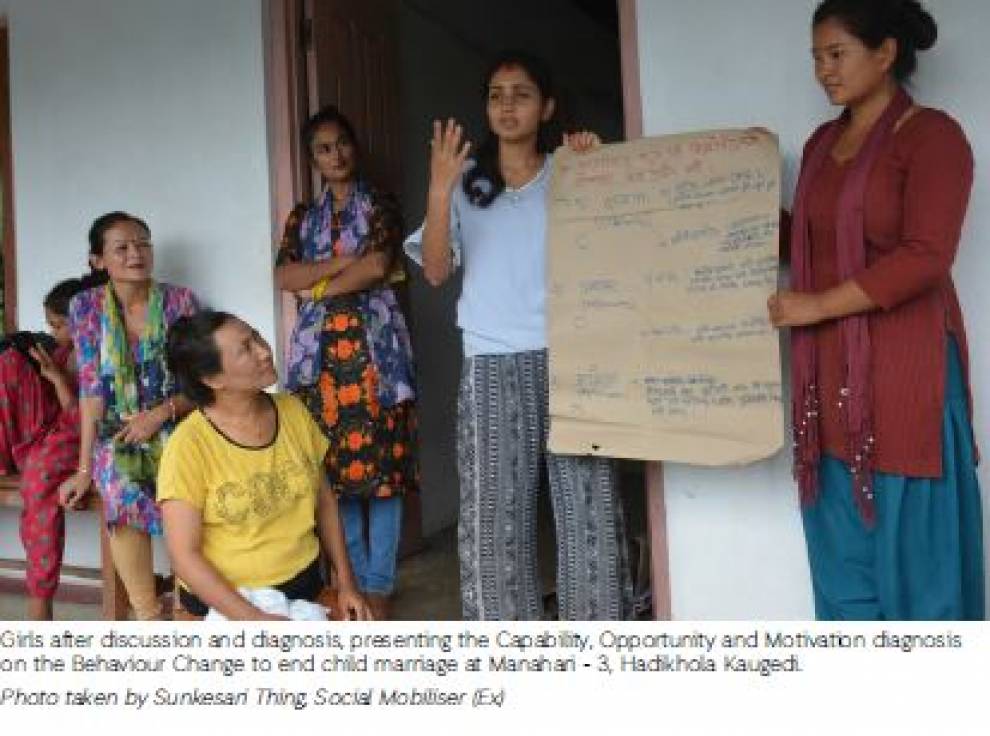Applying behavioural science to reduce gender-based violence within international development
21 October 2020
Dr Paul Chadwick (CBC) and Triona Pender (Action Aid Ireland) describe an academic-NGO partnership to apply behavioural science frameworks to reducing gender-based violence in Kenya, Nepal and Ethiopia

International development programmes have long been applied to the issue of reducing gender-based violence (GBV), and whilst such programmes have resulted in improvements in knowledge and attitude critics have argued they have had limited success in changing behaviour (Fulu et al., 2014). This has prompted calls within the sector for the development of new approaches under the umbrella term ‘doing development differently’ (Valters, 2015; Wild et al., 2017).
ActionAid Ireland and UCL Centre for Behaviour Change have been collaborating for the last four years on a new approach to programming to reduce GBV within development contexts. The approach integrates the Behaviour Change Wheel framework (Michie et al, 2014) within an adaptive programming approach to create an innovative approach to programme implementation. It supports development practitioners to work in the heart of communities,

Combatting social injustice is a relatively new area for the discipline of behavioural science, and the systematic use of behavioural science within international development programming is similarly new. Effective partnership working between UCL CBC and ActionAid Ireland has helped two very different sets of expertise can come together to take the most useful insights of each approach and combine them into something new. A shared commitment to learning together based on curiosity, experimentation and continuous learning has been essential for creating and exploring the utility of this new model for development programming.
In October 2020 we published a field manual which brings together our learnings thus far in a guide for development practitioners. It integrates the human rights based and behaviour change approaches into a single operational model, illustrated with examples drawn directly from the work of the field teams. We still have much to learn - from each other, from our implementing teams on the ground, and most of all from those who we seek to empower. However, publication of the field manual is a firm foundation on which to continue our joint exploration of the application of behavioural science to this critical issue for all women, but particularly those in the global south.
Read the full Behaviour Change Manual here
Read a summary of the manual here
References
Fulu, E., Kerr-Wilson, A., & Lang, J. (2014). What works to prevent violence against women and girls? Evidence Review of interventions to prevent violence against women and girls. Pretoria: Medical Research Council.
Michie, S., Atkins, L., & West, R. (2014). The Behaviour Change Wheel: A Guide to Designing Interventions. London: Silverback Publishing.
Scriver, S., Duvvury, N., Ashe, S., Raghavendra, S., & O’Donovan, D. (2015). Conceptualising Violence: A Holistic Approach to Understanding Violence Against Women and Girls. London:
Valters, C. (2015). Theories of Change: time for a radical approach to learning in development. London: Overseas Development Institute.
Wild, L., Booth, D., & Valters, C. (2017). Putting theory into practice: how DFID is doing development differently. London: Overseas Development Institute.
World Health Organization (WHO), London School of Hygiene and Tropical Medicine, & South African Medical Research Council (2013). Global and regional estimates of violence against women: Prevalence and health effects of intimate partner violence and non- partner sexual violence. Geneva: World Health Organization.
 Close
Close

